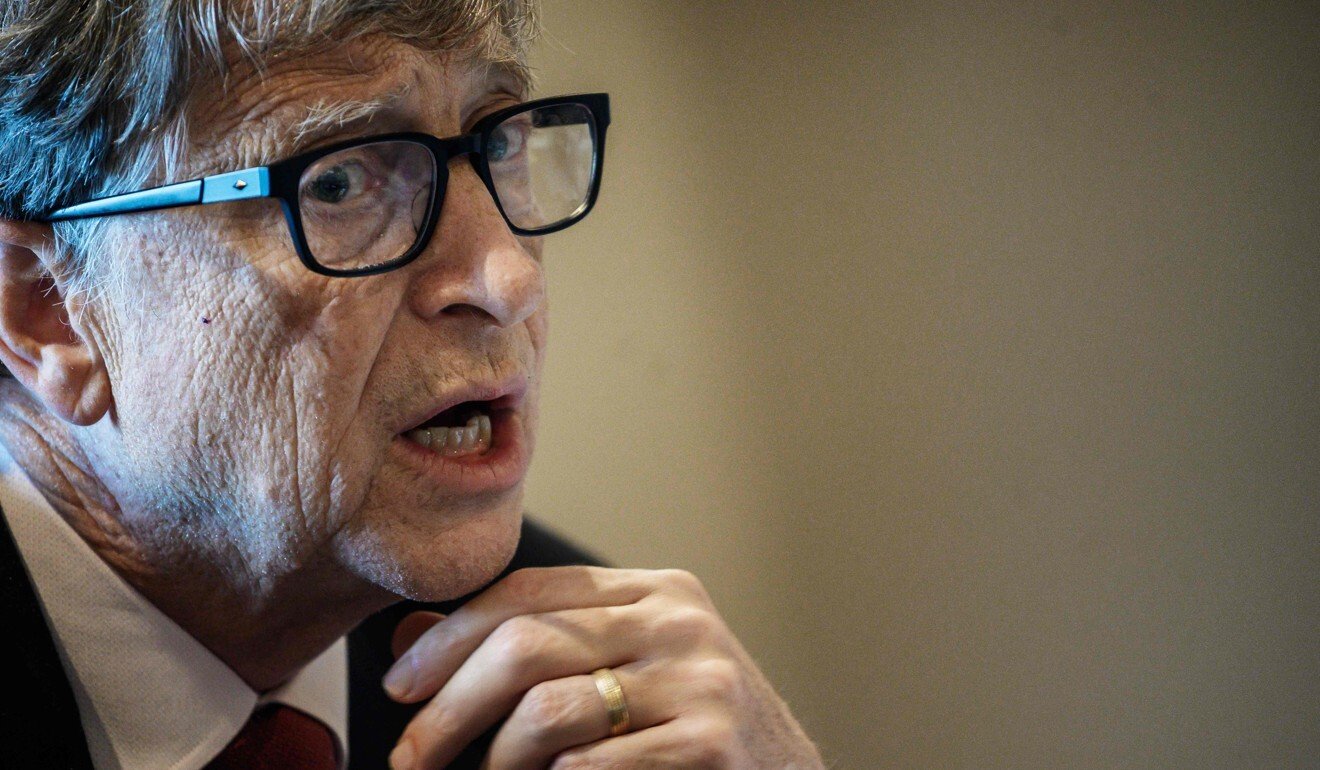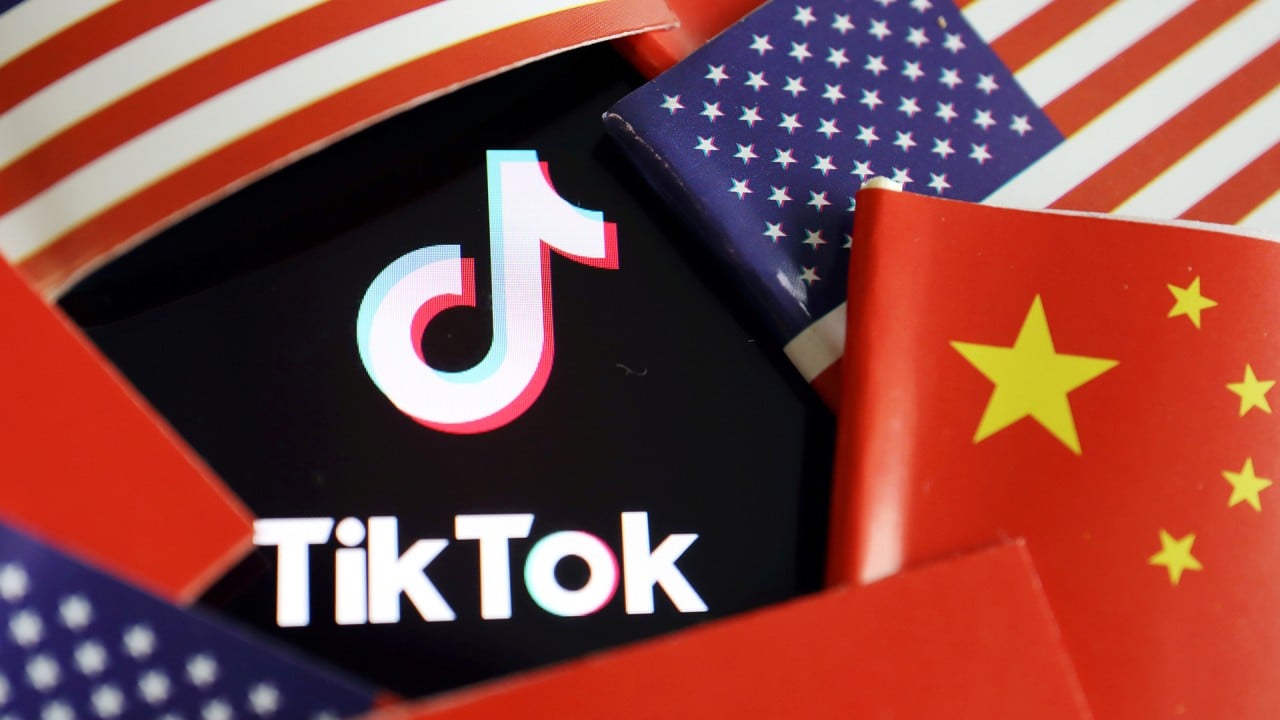
Selling TikTok in the US is a pivotal moment for ByteDance – but a deal is easier said than done
- TikTok is famous for its AI-powered recommendation system, which feeds curated content to users based on their interests
- The US market is a bellwether for others, with user habits there followed in other countries
ByteDance has been forced into a corner by the Trump administration, which now says it must sell the US version of its global short video hit TikTok within 90 days if the app wants to stay in business – and there is much at stake.
Analysts say not only is the US market a bellwether for the Chinese internet company’s global ambitions, pulling off a sale is easier said than done due to a complex array of legal and technical obstacles.
“There is credible evidence that leads me to believe that ByteDance … might take action that threatens to impair the national security of the United States,” Trump said in the order announced on Friday.
Trump’s latest move followed an executive order he issued on August 6 that would prohibit certain transactions in the US with TikTok unless ByteDance divests it within 45 days. Trump applied a similar order to Tencent Holdings’ super-app WeChat, although the details remain unclear.
Will Trump’s newest order give ByteDance longer to sell TikTok?
While Microsoft has confirmed it is pursuing a deal to purchase TikTok’s business in the US, Canada, Australia, and New Zealand, its co-founder Bill Gates has described the potential deal as a poisoned chalice.
“Who knows what’s going to happen with that deal,” Gates said in a recent interview with Wired. “But yes, it’s a poison[ed] chalice.”

Some observers have touted the possibility that ByteDance CEO and founder Zhang Yiming could simply walk away from the US market given that TikTok’s China-only sister app Douyin earns the bulk of both apps’ revenue – but losing the US would be a bitter pill to swallow for Zhang and could slow TikTok’s wider growth down in the short term.
TikTok staff raise funds to fight Trump’s ‘uncool’ executive order
“TikTok has been placed in an impossible situation,” said Joe Albano in an article for his analysis service called “Tech Cache” on investor community Seeking Alpha. “It either gets bought or banned, and neither scenario offers high hopes that it will continue on its popularity path.”
There is of course a third way for ByteDance, which is to challenge the Trump administration’s decision in the courts – an avenue it said it is pursuing, saying it will “pursue all remedies available” to “ensure the rule of law is not discarded”. As of publication, a lawsuit has yet to be filed though.
ByteDance did not immediately respond to a request for further comment on the issues raised in this article.
But the sale of TikTok throws up some complex technical problems, such as auditing all of the code and servers, that could take months or even years to fix, according to experts.

06:35
US demands for TikTok may escalate decoupling and hurt businesses, says China expert
TikTok and other apps from the ByteDance family are famous for their AI-powered recommendation system, which feeds curated content to users based on their interests.
In 2018, ByteDance engineer Cao Huanhuan unveiled some of the technology behind its popular Jinri Toutiao news aggregation app in China, and TikTok in June this year shared some technical details on its website.
Trump’s move to force a sale of TikTok’s US operations puzzles analysts
Both outlined similar mechanisms to match a user’s interest with content. Functionally and technically, TikTok is similar to other ByteDance products that take into account three elements: user interaction on the app, such as liking a clip or following an account; what the content contains – in the case of short video, things like sounds and hashtags; and what “environment” the user is in, such as one’s language preference, country setting, and device type.
At the same time, TikTok also feeds in a certain amount of video content outside the user’s direct interests.
Working out the code is just the first step though – the system requires repeated training with user data, which is co-worked among engineers, strategy and operations staff, so the recommendation algorithms in different markets are different, although they evolve from the same source code, according to a person familiar with the technology.

“The details of a potential split would be complex to say the least. Microsoft, or whoever purchases TikTok, would need to audit all of the code, servers, business contracts, processes, and even employees before they make any substantial changes,” said Patrick Jackson, a former National Security Agency researcher who is now chief technology officer of privacy software company Disconnect. “I suspect this could take several months at least – maybe even years.”
The chances of the companies cleaning everything up within a month or two are “to put it lightly, slim at best”, said Wade Weems, a Shanghai-based lawyer at Kobre & Kim and former prosecutor with the US Department of Justice National Security Division.
ByteDance to escalate fight against Trump’s TikTok ban, sources say
“From there, they will have to negotiate with the US government for the latter’s right to monitor, inspect, or impose any controls etc … until the completion of the deal,” said Weems.
Microsoft, when announcing its talks with ByteDance, pledged to “ensure that all private data from TikTok’s American users is transferred to and remains in the United States.”
As such, the clean cut-off that Trump and lawmakers are looking for, could take a year or more, according to the Reuters report.
“Managing the code, should it need to be torn down, is not an easy feat,” said Albano in an email. “The potential for a national security problem still exists. And this goes for any company who potentially buys it, not just Microsoft.”
Aside the technical difficulties – analysts say the prospects for TikTok to operate as freely as it once did in the US are now very low – and this could spell trouble for its ambitions in other major markets such as India and Europe.
TikTok was downloaded 49 million times in the US in the first half of 2020, with in-app revenue reaching US$28.6 million, comprising almost 60 per cent of TikTok’s total in-app revenue, according to data provider Sensor Tower. While TikTok in India has more subscribers than the US, its share of revenue is smaller.
TikTok, WeChat targeted for US ban with Trump’s latest executive orders
“The whole Indian market has very little ability to pay,” said analyst Nan Lu at Sensor Tower. “Monetisation there is still very far away, because India’s economic development is not at the same level as China’s, so the pace of China’s internet development cannot be used to predict the pace of internet development in the Indian market.”
In terms of advertising, spending on social media in the US is expected by Forrester Analytics to reach US$37.4 billion, compared with only US$1.7 billion in India. “In terms of monetisation, the US market is significantly more important than India,” said Xiaofeng Wang, a senior analyst at Forrester.
“It’s impossible to make the [TikTok] ecosystem work without the US,” said Lu. “Losing the US market would be a process of folding in its wings, the company definitely wants to keep it … Take social media for example, we haven’t seen Europe cultivate apps as popular as Facebook and YouTube.”
The US market is a bellwether for others, user habits in the US are followed elsewhere, and without a US TikTok, many of its influencers could switch to other platforms, impacting the global business, added Lu. TikTok has disrupted the big US tech giants and that has been a big factor in its breakthrough global success.
Meanwhile, India's government has just blocked a number of Chinese apps, including TikTok, saying they are using data illegally, and secretly collecting information from people's phones when they download the apps. The ban came amid rising tensions between China and India on their Himalayan border.
Finally, experts say ByteDance’s chances of a successful legal challenge to US actions are uncertain.
“A legal challenge from ByteDance will be difficult, but not impossible,” said Weems.
TikTok waits on British support before confirming plan for London base
ByteDance mentioned in its statement that Trump’s August 6 executive order was “issued without any due process.”
“This might point to a potential due process claim: In other words, the company was not afforded a fair look at any of the evidence, whether during the CFIUS process or in relation to the actual International Emergency Economic Powers Act (IEEPA) action [by President Trump], and therefore was not able to assess or understand the basis for the action,” said Weems, “In this way, TikTok could not formulate a meaningful response, which could be in violation of the right to procedural due process.”
Weems said ByteDance could also mount a first amendment challenge.
“TikTok could potentially leverage a broad challenge that Trump’s action restricts the content of the ideas found within its app, as opposed to the regulation of TikTok as a forum for speech,” he said. “This would be a violation of the first amendment, and the right to free speech.”
Finally, the company could also “wait it out until the US election to see [if something changes], but losing almost two months of US usage may not be entirely recoverable,” said Albano.
That could be a doomed strategy though as Joe Biden, front-running Democratic presidential nominee, is not a fan of TikTok either, and recently told staff members to delete the app from their phones.


